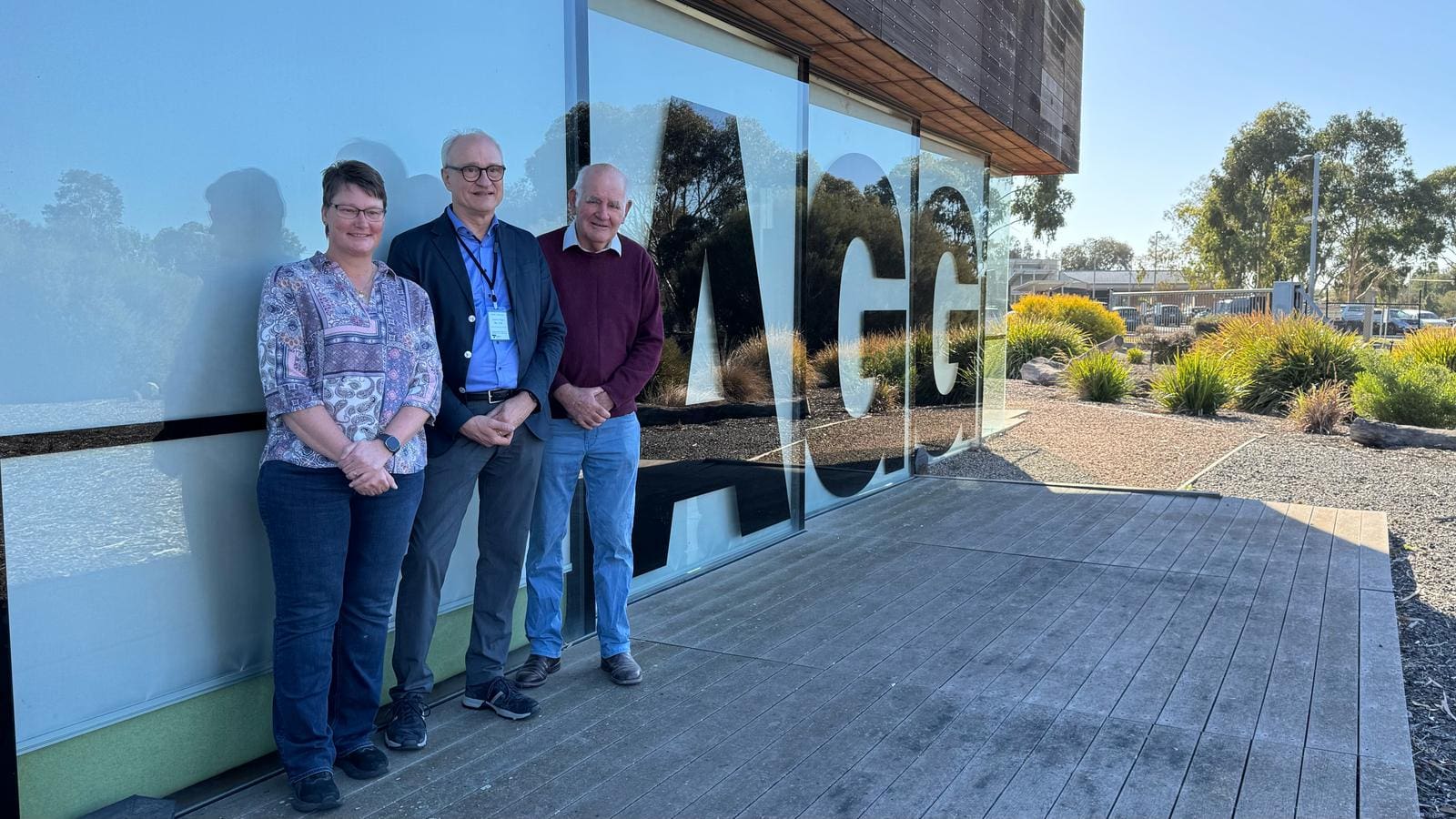
Australian Grains Genebank leader Dr Sally Norton, Crop Trust executive director Dr Stefan Schmitz, and Crawford Fund director Dr Tony Gregson. Photo: Australian Grains Genebank
NOW is the time to invest in crop conservation and use, to hedge against the uncertainty caused by instability, conflict, malnutrition, and climatic change.
This is the key message of Crop Trust executive director Stefan Schmitz of the the international organisation working to conserve crop diversity, and thus protect global food and nutrition security.
Dr Schmitz is visiting Australia from Germany, and will be addressing the Crop Diversity – a lifeline for resilience, peace, nutrition and food security event in Canberra on Thursday.
The event will also include the launch of a new Crawford Fund book by internationally recognised agricultural economist Dr Derek Byerlee, who has dedicated his career to agriculture in developing countries.
Entitled Australia’s Search for Greener Pastures: The Foundations of the Global Genetic Resources Movement 1926-1980, the book highlights the impact of Australia’s scientific leadership in pioneering the global movement for plant genetic resource conservation.
“More than 700 million people have faced hunger in 2023, more than 2.3 billion were moderately or severely food insecure,” Dr Schmitz said.
“Producing sufficient, nutritious and affordable food for everyone will become an even greater challenge in the future – in a world with growing population, where fertile soil and water for irrigation are becoming increasingly scarce and climate change is now altering production conditions to an unprecedented extent.”
At the Canberra event, Dr Schmitz will be on a panel with Australian Grains Genebank leader Dr Sally Norton, and 2023 winner of the Crawford Fund Medal, internationally renowned crop scientist and breeder Dr Tony Fischer, brother of former Crop Trust and Crawford Fund chair, the late Tim Fischer.
“Crop conservation and use offers a solution to these challenges.
“Crop diversity is a key to end hunger, for economic development, environmental sustainability and even stability within and among countries,” Dr Schmitz said.
“Now is the time for more political attention and more investment in crop conservation and use.
“This is the moment to hedge against uncertainty, make global agricultural production resilient against challenge and ensure food security.
“Agricultural diversity is in serious danger; it is disappearing before our very eyes.
“By relying on a few high-performing varieties of a narrow range of crops, we risk losing the diversity that is not used.
“When we lose diversity, we shrink the menu of options at our disposal to develop and grow more climate-resilient crops and varieties.”
“The protection of agricultural biodiversity and the continued availability of resilient crops and varieties are therefore more urgent than ever before.
“Seed banks around the world, like the Australian Grains Genebank, play a special role in this.
“The crops conserved in genebanks are not just the familiar staples but also include little-used or ‘forgotten’ crops, whose nutritional and ecological properties represent an invaluable asset for the transformation of agricultural food systems.”
“However, the existence and work of many seed banks, especially in poorer countries, is by no means secure.
“Their adequate funding is all too often simply overlooked in the face of other global challenges.
The foreseeable risky consequences for global food security cannot be reversed. Losing a variety tears a hole in the genepool that can no longer be filled.”
Source: Crawford Fund

HAVE YOUR SAY